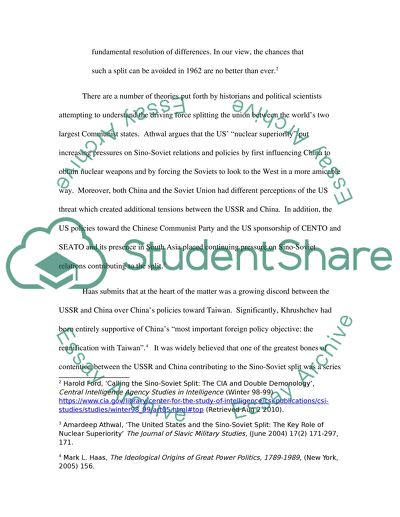Retrieved from https://studentshare.org/miscellaneous/1569134-sino-soviet-relations-1958-1962-the-second-taiwan-strait-crisis-and-the-sino-soviet-split
https://studentshare.org/miscellaneous/1569134-sino-soviet-relations-1958-1962-the-second-taiwan-strait-crisis-and-the-sino-soviet-split.


